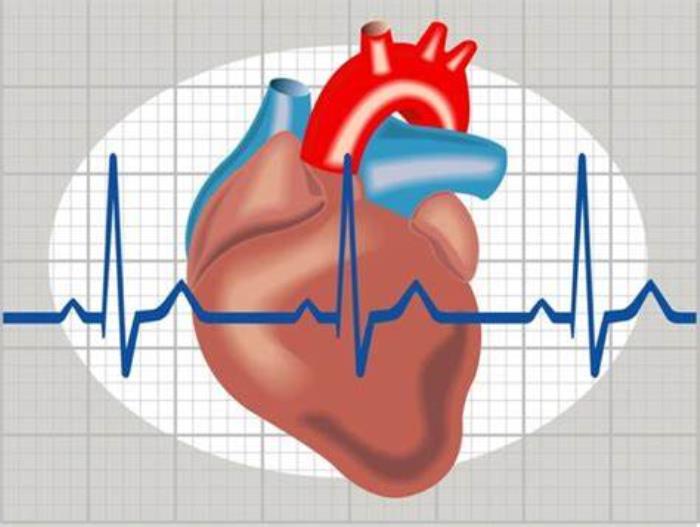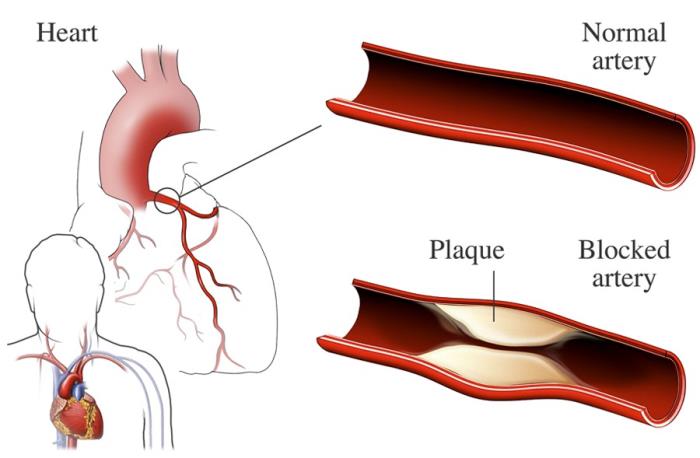Tetralogy of Fallot (TOF) is a complex congenital heart defect that impacts blood flow and oxygen levels in the body. The condition is characterized by four key heart abnormalities: a ventricular septal defect (VSD), pulmonary stenosis, right ventricular hypertrophy, and an overriding aorta. Surgical treatment aims to correct these defects, improving oxygenation and heart function, which are essential for a healthier life. Surgery for TOF is often performed in infancy, though it may also be needed in older patients.
Overview of Tetralogy of Fallot Surgery: Goals and Outcomes
The primary goal of TOF surgery is to repair the structural abnormalities that prevent normal blood flow and oxygen distribution. During surgery, the VSD is closed, and the narrowed pulmonary pathway is widened to allow adequate blood flow from the heart to the lungs. This helps improve oxygen levels and reduces the workload on the heart. Long-term outcomes of TOF surgery are generally positive, with most patients experiencing significant improvement in symptoms, energy levels, and overall quality of life.
Common Risks Associated with TOF Surgery
While TOF surgery is generally safe and effective, like all surgeries, it carries certain risks. Potential complications may include bleeding, infection, and adverse reactions to anesthesia. Additionally, because TOF repair is a complex procedure, there is a risk of heart function issues during or after surgery. Close post-operative monitoring and specialized care help to manage and mitigate these risks, allowing most patients to recover successfully.
Cardiac Arrhythmias After TOF Repair: Causes and Management
Arrhythmias, or irregular heart rhythms, are a relatively common complication following TOF surgery. These may arise due to scarring of the heart tissue during surgery or the altered structure of the heart after repair. Common arrhythmias post-TOF repair include atrial flutter, atrial fibrillation, and ventricular tachycardia. Treatment may involve medications to control the heart rate or rhythm, and in some cases, procedures such as catheter ablation to eliminate the abnormal electrical pathways. Pacemakers may also be recommended for more severe or persistent arrhythmias.

Risk of Heart Valve Leakage Following Surgery
Heart valve leakage, particularly of the pulmonary valve, can occur after TOF surgery. This leakage, known as pulmonary regurgitation, happens when the repaired valve cannot fully close, causing blood to flow back into the right ventricle. Over time, this can lead to right ventricular enlargement and reduced heart function. Pulmonary valve replacement may be recommended for patients who experience significant regurgitation, to ensure better long-term heart health and function.
Residual Ventricular Septal Defect: Causes and Treatment Options
In some cases, a small residual VSD may remain after TOF repair. This residual defect can result from incomplete closure or the creation of a new opening due to tissue stretching. Small residual VSDs often do not cause symptoms and may be left untreated. However, if the residual VSD is significant, further intervention, such as a secondary surgery or catheter-based closure, may be necessary to prevent complications like heart failure or decreased oxygen levels.
Pulmonary Valve Complications After TOF Surgery
Pulmonary valve issues are common after TOF repair, especially when a transannular patch is used to widen the narrowed pulmonary pathway. This repair method can lead to long-term pulmonary valve insufficiency, where the valve does not effectively control blood flow, causing regurgitation. Over time, this may lead to right ventricular dysfunction and necessitate pulmonary valve replacement. Advances in valve replacement techniques, including minimally invasive transcatheter pulmonary valve replacement, provide effective options to manage these complications and improve long-term outcomes for TOF patients.
Coronary Artery Injury: A Rare but Serious Complication
In rare cases, Tetralogy of Fallot (TOF) surgery can lead to coronary artery injury. The complex nature of TOF repair, involving structures close to the coronary arteries, increases the risk. Surgeons take precautions and use advanced imaging techniques to prevent injury, but when it occurs, coronary damage can lead to serious heart complications. Prompt intervention and specialized surgical techniques are essential in managing this risk.

Potential for Heart Failure Post-Surgery: Signs and Prevention
Heart failure is a potential long-term complication after TOF repair, particularly in cases where additional heart issues exist. Signs of heart failure include fatigue, shortness of breath, and swelling. Preventive strategies include regular monitoring, medications, and lifestyle adjustments. Early detection of heart function issues allows for prompt management, reducing the risk of heart failure progression.
Infection Risks During and After TOF Surgery
Infection is a risk associated with any surgical procedure, including TOF repair. During and after surgery, patients receive antibiotics to lower the risk of infection. Post-surgery, proper wound care, hygiene, and monitoring help prevent infection at the incision site and within the heart. Recognizing symptoms such as fever, redness, or increased pain at the incision early on can aid in quick intervention.
Bleeding and Blood Clot Risks in TOF Repair
TOF surgery involves delicate procedures around major blood vessels, creating some risk of bleeding during and after surgery. Blood clots are also a potential risk, which can lead to complications like stroke or pulmonary embolism. Blood-thinning medications may be prescribed temporarily to minimize clot risks. Surgeons carefully control bleeding during surgery, and patients are monitored closely in the recovery phase to catch and address any clotting concerns early.
Respiratory Complications After TOF Surgery
Respiratory issues can arise due to anesthesia, prolonged bed rest, or changes in lung circulation following TOF surgery. Some patients may experience difficulty breathing or require oxygen support post-surgery. Respiratory therapy, deep breathing exercises, and early mobilization help minimize these complications. Close monitoring ensures that any respiratory issues are managed effectively during recovery.
Neurological Risks: Stroke and Brain Function Concerns
While uncommon, stroke and other neurological complications can occur due to blood clots, changes in blood pressure, or other factors during TOF surgery. Symptoms like sudden confusion, weakness, or speech changes may indicate neurological complications and require immediate attention. Preventive measures, including careful monitoring and maintaining stable blood flow during surgery, help reduce these risks.
The Impact of TOF Surgery on Lung Function
TOF repair can alter blood flow to the lungs, which may impact lung function, especially in the short term. Some patients may experience temporary lung issues, which generally improve with time and respiratory therapy. In some cases, long-term follow-up is necessary to ensure that lung function stabilizes and no chronic issues develop.
Challenges in Long-Term Heart Function After TOF Repair
Long-term heart function can be affected by TOF repair, particularly if residual defects remain or if the heart’s structure has been altered. Patients may experience arrhythmias or reduced heart pumping efficiency. Regular follow-up appointments, imaging tests, and sometimes medications help monitor and manage heart function. Early detection of issues allows for timely intervention, preserving heart health in the long term.
Postoperative Care to Minimize Risks and Complications
Careful postoperative care, including wound management, pain control, and respiratory support, plays a vital role in minimizing complications. Patients are encouraged to adhere to follow-up appointments, monitor for symptoms, and follow their doctor’s guidelines on activity and medications. This approach supports safe healing and reduces the risk of post-surgical complications.
Importance of Follow-Up Care in Managing Complications
Regular follow-up care allows doctors to monitor heart and lung function, detect complications early, and adjust treatment as needed. Long-term follow-up is essential for individuals who have undergone TOF repair, as it helps address potential issues related to both the heart and overall health. Periodic check-ups, imaging, and blood tests aid in managing health effectively post-surgery.
Lifestyle Adjustments to Support Recovery and Reduce Risks
Making lifestyle adjustments after TOF repair can significantly support recovery and reduce the risk of complications. Maintaining a heart-healthy diet, staying active, avoiding smoking, and managing stress are all beneficial. Adopting these habits early on can help protect long-term cardiovascular health and reduce the likelihood of complications.
Advances in Surgical Techniques to Minimize TOF Complications
Innovations in surgical techniques, such as minimally invasive approaches and robotic-assisted surgeries, have reduced TOF surgery complications. These advances allow for more precise operations, shorter recovery times, and decreased risk of infection. As technology evolves, the outcomes for patients undergoing TOF repair continue to improve, leading to better safety and long-term health benefits.
Conclusion: Weighing Risks and Benefits of TOF Surgery
TOF surgery, while complex, provides significant benefits in terms of improved heart and lung function, reduced risk of heart failure, and enhanced quality of life. Although there are potential complications, advancements in surgical methods and careful postoperative care have minimized these risks. By understanding both the risks and benefits, patients and their families can make informed decisions and feel confident in the potential positive outcomes of TOF repair.
Best Tetralogy of Fallot Surgery in India
The Best Tetralogy of Fallot Surgery in India offers a comprehensive surgical solution for children and adults with TOF, helping correct heart defects and improve oxygenation and quality of life.
Best TOF Surgery Surgeons in India
The Best TOF Surgery Surgeons in India are experts in treating complex congenital heart defects, providing patient-focused care and skilled surgical expertise for successful TOF correction.
FAQ
What are the main risks of Tetralogy of Fallot surgery?
Risks include coronary artery injury, infection, bleeding, respiratory complications, and, in rare cases, neurological issues such as stroke. However, careful surgical planning and monitoring minimize these risks.
How common are complications after TOF surgery?
While complications can occur, they are generally uncommon due to advances in surgical techniques and improved post-surgery care. Regular follow-ups also help catch and address issues early on.
Can TOF surgery lead to heart valve issues?
Yes, some patients may experience valve-related complications, particularly with the pulmonary valve. In such cases, additional follow-up care or surgical intervention may be necessary.
What is the risk of heart failure after TOF repair?
Heart failure risk exists but is typically low with proper follow-up and lifestyle adjustments. Long-term monitoring and lifestyle habits are essential to maintaining good heart function.
How is the risk of infection managed after TOF surgery?
Antibiotics are administered during and after surgery to prevent infection. Proper wound care and hygiene are also crucial in minimizing infection risk, and patients are closely monitored for any signs of infection.
Explore the Best Heart Care Resources in India
Find some of the top cardiologist, surgeons and the best heart hospitals in India
Best Heart Hospitals in India
Choosing the right hospital is crucial for successful heart treatments. If you want to explore trusted options, check the list of Best Heart Hospitals in India offering world-class facilities, advanced cardiac care units, and experienced teams for both simple and complex procedures.
Best Cardiologists in India
Finding the right cardiologist can make a huge difference in early diagnosis and long-term heart health. If you are looking for the Best Cardiologists in India, see this curated list of experts who specialize in preventive care, interventional cardiology, and complex heart disease management. Check the full list Best Cardiologists in India.
Best Cardiac Surgeons in India
If you are planning for heart surgery and need top-level expertise, we recommend exploring the Best Cardiac Surgeons in India. These surgeons have a proven record in performing bypass surgeries, valve replacements, and minimally invasive heart operations with excellent outcomes.